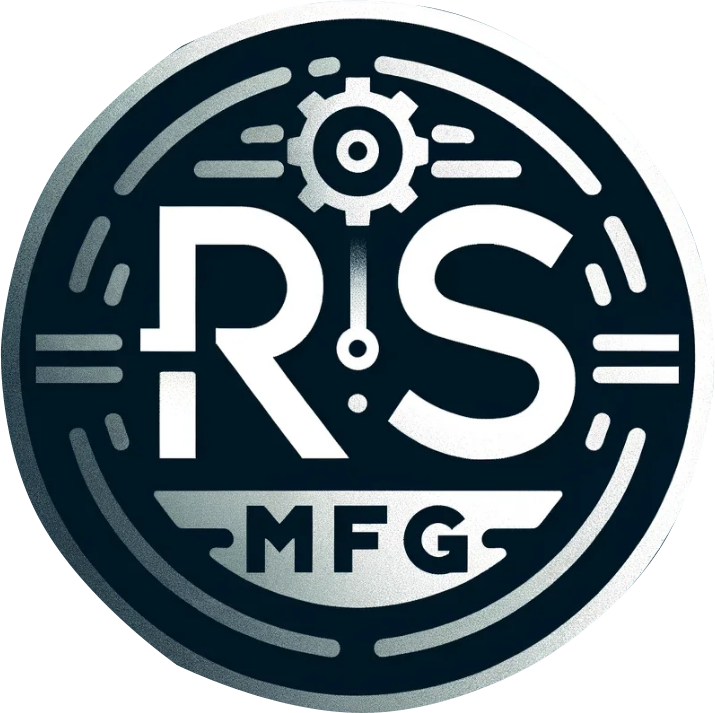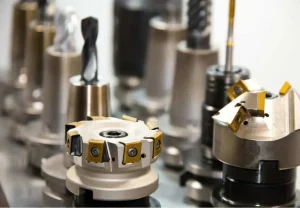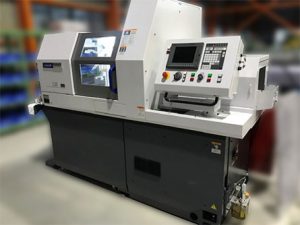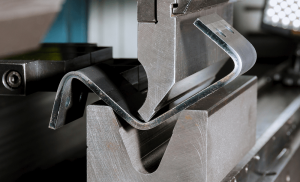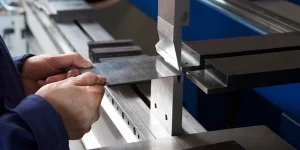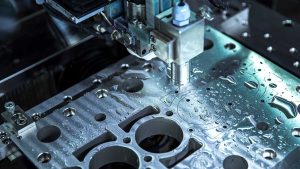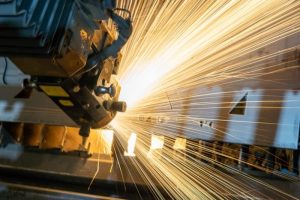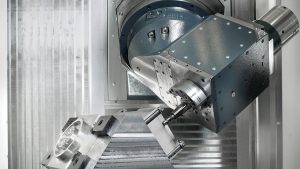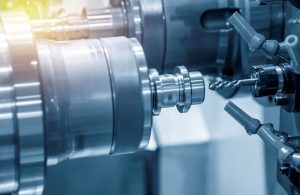CNC machining is widely used in industries such as medical, aerospace, transportation, oil and gas, military and defense, electronics, and marine, offering precise and efficient manufacturing solutions.
Medical Industry
CNC machining in medical industry have a great effectowing to its operations that could foster the manufacturing of intricate, precision-cut tools and instruments among others. Applicable to the creation of life-saving, bespoke medical devices and components needed for modern healthcare.
Precision and Customization
CNC machining provides precision that is vital for medical devices, to the extent it can be called one of key features. That technology enables to make components with 0.001 inch tolerances, rather than forging or casting them at nearby facilities. Accuracy is vital as it ensures that items are correctly dimensioned and can be complex, such as the cardiovascular stents which need to fit within the human body perfectly.
Another huge reason is the customization you get with CNC machining. This enables medical devices to be custom-printed to perfectly fit an individual, for example as implants such as knee and hip joints. This customisation allows the implants to better bisect with human bone structures, leading to improved surgical outcomes and patient recovery.
Material Versatility
CNC Machines in the Medical Industry These include:
- Titanium: Titanium is lauded for its strength, light weightd and biocompatibility It is common in the manufacture of surgical instruments as well as bone replacemet materials.
- Stainless Steel – This material is used for a variety of reasons from corrosion resistance to strength and makes it one of the better materials for surgical tools or other types medical devices that rest outsideQuote.
- PEEK: A material with many of the same properties of human bone, PEEK is used in implantable devices.
- These materials can be CNC machined to exact patterns of the rigorous standards required by medical science.
Efficiency and Speed
Medical devicesEngineering stages are accelerated using CNC machining. Full Rapid Prototyping: CNC technology finishes until fine circle gives feedback, where need to change – From concept to product completed rapidly in expensive. Such speed is crucial in order to respond rapidly to new medical needs, e.g., for producing surgical tools or devices tailored for a specific pathological condition.
Affordability and Scalable
The biggest drawback to CNC equipment is the cost, that being said it also offers a significant advantage with scalability and efficiency in mass production. When the design is done, high quality parts can be produced in very large numbers with much less variation between units because they are being cut by a machine — every part will have an almost identical completion at scale. For example, such scalability is absolutely ideal for high-demand medical supplies – like surgical screws and plates (of which hospitals across the globe need lots of them).
Compliance and Regulatory support
CNC machining enables them to uphold the required medical laws and regulations due to its accuracy. These standards ensure that all parts produced meet strict safety and effectiveness specifications. The imminent, consistent production of parts within the expected tolerances is one way that CNC machining protects manufacturers from recalls and compliance issues.
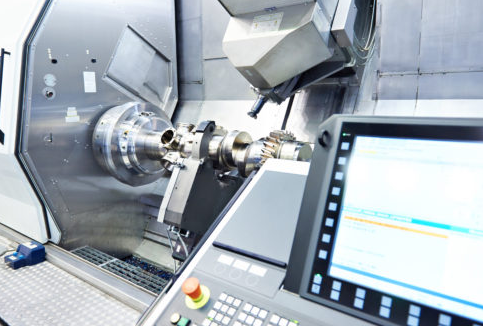
Aerospace Industry
In the aerospace industry, CNC machining is extremely essential with precision, high reliability and quality standards. Complex parts needed for aircraft and spacecraft are made to be as efficient as possible, thanks to the capabilities CNC technology offers.
Accurate Highinerary with a low error rate
Aerospace requires every single part to meet very strict requirements because even the tiniest deviation could lead to catastrophic disasters. If a requirement is for very exact parts to be made within 0.0001 inches of the stated dimensions then CNC machining are good at it. This level of precision helps ensure the reliability and safety of aerospace components (engine parts to airframe), while also improving their performance characteristics.
Material Flexibility
- AerospaceCNC machining is a process, which excels in fabrication of lightweight and strong materials suitable for aerospace applications.
- Aluminum alloys – Used for their high strength-to-weight ratios, critical in fuel efficiency and structural stability.
- Titanium- high strength, resistance to corrosion and fatigue; used for critical aerospace structures
- Composites – CNC machines can shape complex composite materials, which are becoming more common in modern aircraft design because of their low weight and strength characteristics.
Advanced Structures and Custom Aesthetics
Many aerospace components have complex geometries that are difficult to create using conventional manufacturing methods. CNC machining is the most effective process for fabricating parts with complex geometries, as well as repeatability. CNC technology can be adjusted to replicate the exact aerodynamic profile of blades in air turbine engines, for instance.
Efficiency and Cost Savings
CNC systematically eliminates bottlenecks in the manufacturing process, greatly reducing cycle times from design to production. And when development cycles itself can be long and expensive, the ability to rapidly prototype – then bend it again before sending into production is pretty amazing. In addition, automation of the CNC processes is reducing labor costs and hence helps to eliminate human-related mistake, as a result it increases throughput efficiency.
Compliance Regulatory and QC
Aerospace manufacturing is subject to strict international standards emissions by both the Federal Aviation Administration (FAA) and European Union Aviation Safety Agency (EASA). Consistent And Repeatable Production Processes: CNC machining enable manufacturers to meet up these critical safety and quality standards because of the consistent & repeatable production processes. The CNC operations (such as machining and scoring) produce detailed documentation to secure quality assurance, complying with regulations to guarantee traceable; properly functioning parts.
Transportation Industry
CNC machining enhances the transportation industry by advancing the manufacturing of air, land and sea vehicles. The high precision, flexibility and productivity offered through this technology are in demand for parts used within the automobile industry, as well other possibilities including trains and ships as well space.
Safety: Precision Manufacturing
As the transportation sector places a premium on safety, CNC machining plays its part by enabling parts to be produced with greater accuracy. Engine pistons, brake systems and transmission gears must be to exacting standards in order to function reliably. Constructed using CNC technology, these components are engineered to operate flawlessly within tolerances as small as 0.0005 inches for an accurate and consistent driver feel that guarantees increased safety on the road!
Material Versatility and Performance
CNC machines can work with many of the materials essential for transportation such as :
- Aluminum: Used across the board in automotive and aerospace because it’s a light metal, which can give as much of 1-2% better fuel economy or faster top speeds from weight savings.
- Steel: Because of its superb durability and strength, particularly for structural parts in heavy conveyence vehicles like trucks trains.
- Plastics and Composites – Widespread use in modern vehicles to reduce weight and improve fuel economy.
- This flexibility with the material gives manufacturers a chance to tune each part according to its specific requirements, such as reducing weight in automotive applications or boosting corrosion resistance in maritime settings.
Greater resource optimization & cost benefits
The use of CNC machining in the production process enables us to bring new transportation solutions to market much faster. This automation of CNC processes reduces the possibility for human error and labor cost with faster turn-around time by ability to do rapid prototype, resulting in quicker iterations and optimizations algorithm. It’s a practice that not only speeds up development cycles but also works to help manufacturers keep the cost of production in check, thereby making transportation technologies more affordable and accessible.
Customization and Innovation
The essence of the transportation is to continuously evolving nowadays with new technologies and designs. The ability to customize parts for targeted applications is one of the most significant way that CNC machining can help this innovation, reducing rise times and creating specialized fittings on-the-spot as opposed to waiting in line with everyone else. It is important for staying in line with industry trends as well as addressing the new needs of todays transportation infrastructures.
Quality Assurance & Compliance
Transportation must adhere to strict standards and certifications that are necessary for the components involved, proving reliability of these methods as well comply with global safety regulations. CNC machining is able to meet these requirements by offering tight and precise control over the manufacturing process, which means a consistent quality for every part produced. The technology’s ability to generate precise records at each stage of the batch process enables us verify compliance with regulations and facilitates quality audits.
Oil and Gas Industry
Oil & gas requires the performance of CNC machining-a critical technology for this industry, where punishing and often dangerous conditions demand an excellent level of precision, reliability, and ruggedness. CNC machines allow such essential and complex components to be manufactured for oil & gas drilling, exploration, extraction.
High Precision and Durability
Equipment utilized in the oil and gas industry, such as valves or parts involving pistons and rods must endure intense strain conditions along with being corrosion-proof. CNC machining offers the required level of precision to fabricate these components within tight tolerances, ensuring they work well even when subjected to harsh conditions. One of the key features we can offer is to hold sizes very closely, typically +/- 0.0005 inches and this concentration upon accuracy helps prevent any leaks or failures in equipment employed both onshore as well as offshore thereby offering complete mushrooming forging solution under one roof.
Material Versatility
In oil and gas extraction and processing, both the pressure of very deep wells (30 to 40 kbar) as well as extremely high temperatures and corrosive substances are factors that simply demand materials which can withstand these harsh conditions:
- Stainless Steel: It is used in pipelines and underwater equipment as it needs to be very strong, whilst also having a higher resistance to corrosion than carbon steel.
- Alloy Steel: Tougher type which works well for high-stress applications, such as drill bits and heavy-duty machinery.
- Titanium: highly resistant to sea water and known for its strength-to-weight ratio; ideal material for offshore drilling applications.
- CNC machines can precisely machine these materials to such an extent that they comply with the high standards of industry in complex parts.
Production Efficiency and Budget Management
One of the most important CNC machines is that it automates aspects of production, which increases efficiency and reduces labor costs while minimizing human errors. This is especially useful when fabricating numbers of parts in the hundreds to thousands, which fits most projects typical for oil and gas. Moreover, the accuracy of CNC machining results in less material wastage – a big thing to consider when you are experimenting with precious alloys.
Rapid Prototyping and Customization
Many oil and gas projects are custom in nature with a need for non-standard fittings or components, all of which benefit from the adaptability offered by CNC machining. It enables engineers to produce and test parts quickly leading to the final part that is optimized for performance before it goes into full-scale production.
Safety and Regulatory Compliance
In the oil and gas industry, where even a small failure can lead to disaster, there is no higher priority than safety. CNC machining can be applied to meet the strenuous safety standards that are mandatory in this industry where lives might actually depend on it. The production process of each components is traceable and will be documented for safety audit as well to comply with global standards; such as API (American Petroleum Institute) or ISO (International Organization for Standardisation).
Military and Defense Industry
In the military and defense industry, CNC machining is a must due to extreme requirements for precision, reliability and durability. The technology is essential for the production of mission-critical components in everything from vehicles and airplanes to weapons systems, communications equipment, space launch vehicles and satellites.
Precision and Reliability
Failure of equipment is not something that can be allowed in the defense sector. CNC machinings parts produce high accuracy and tolerance in producing components which should work reliably at the extreme environment. Jet engine parts, missile guiding systems and armor vehicle plates are only some examples that need to be manufactured with tolerances as low as 0.0001 inches! A high level of precision is essential to ensure that all components are perfectly the same and operate reliably – which in turn, is key for not only ensuring military safety but also operational accuracy.
Material Versatility
In the context of military applications, there are very few off-the-shelf materials that can not only withstand high-temperature impact or corrosion conditions. It is used in colors, woods and other versatile material from which a CNC machine can work including;
- Aircraft Quality Aluminum For all other aircraft frames and parts, high-yield strength with lightest weight.
- Titanium, Known for its excellent strength-to-weight ratio and resistance to corrosion it is an expensive metal used in both aerospace as well as naval applications.
- Armored Steel (needed-use only on ground vehicles to avoid vulnerability against ballistics)
- These materials are essential for the long-lasting aspect and performance of military hardware, so you need CNC machining that can process these into various sizes and shapes needed in different defense applications.
Improved Production Efficiency
CNC machining streamlines the manufacturing steps and makes it possible to manufacture somewhere in a fraction of time. It is this efficiency which – in addition to other attributes, including the ability for rapid depot-level overhaul and global availability of parts on demand-matters especially when one needs something built quickly. Automation of CNC operations reduces human error further improving production quality.
Meaning, Customisability And Flexibility
These tend to evolve very dynamically with changes in the threats and various scenarios that a military plans for. CNC machining offers the versatility to reduce custom and detailed designs without a lot of retooling. This ability to adapt is vital when creating new technology and in tweaking existing hardware for a variety of operational needs.
Affordable and Scalable Solutionjobs
When we consider that even if the price of CNC machinery is high, in the final accounting it becomes a profitable option because savings exist on labour cost and also your production time reduces drastically thus lowering overall cost. In addition to that CNC processes are always scalable which means little effort is required for transferring the equipments on mass scales in order boost production, hence catering easily with military demands when its requirements varies over a very long period.
Meets Military Standards
Military grade components must meet tough standards when it comes to performance and safety. Thanks to CNC machining, it allows us controlling all factors how something gets made and structured as they have been certified by the standards. Secondly, the reliability of CNC machining services allow for accuracy and uniformity that is needed to meet the exacting standards and quality control stipulations demanded by military specs.
Electronic Industry
This is because the electronic industry, a sector rooted in rapid innovation and demanding for accuracy deals with very high precision components which to achieve are impossible without CNC machining community. CNC machines are used for the automated production of even small to most complex parts applications in various industries right from consumer electronics, medical sectors and up to high-end communication based systems.
Precision and Miniaturization
With components growing smaller and smaller, electronic devices continue to get ever more compact. CNC machining satisfies this need by creating small, complex parts to exact specifications. SUMIME performs such intricate components like semiconductor housings, connector housings and other parts for mobile phones, computer and camera bodies. These advanced devices usually require high precision, up to micrometers in most cases and this is why CNC machine are key.
Material Diversity
There is a plethora of things that you can measure in the field of electronics, and many materials to make components out of which have specific properties such as conductivity or magnetic permeability.
- Aluminum: Great thermal conductivity and lightweight, perfect for heatsinks and casings.
- Copper (most commonly used in electronic components because of its high electrical conductivity)
- Plastics- (e.g. Polycarbonate, ABS…)- materials often used in the casings of electronic devices because they can be easily molded and are able to insulate better than many other types of material .
- With CNC machining, which can process a wide range of materials,this allows for the choice of suitable material based on its function in the electronic device.
Speed to Market
The electronics industry is extremely adept at pace-setting and other markets can learn much from its rapid response capability. Rapid prototyping through CNC machining gives a whole new dimension to design and real-world testing in the product development process. The speed of this rapid prototyping shortens the overall development cycle, meaning quicker time to market for new offerings and faster responses to customer demand.
Customization and Scalability
Just as electronic products have evolved is the way they are built, and along with it was a growth in its component requirements. CNC Machining -The Solution for this RevolutionThis transformation in manufacturing is supported by the flexibility that CNC machining can bring to a job shop(cycle time, set up changes etc…) That in turn translates to the ability of generating small lots economically, as readily as high-volume runs – with precision and minimal error. This level of flexibility can be a game changer for electronics manufacturers, who are constantly required to respond promptly and flexibly with fast-evolving technologies trends in design.
Save Costs and Reduce Waste
CNC machining is not only precise, but can also help cut down waste of materials. In the electronics industry, this precision cutting is especially crucial due to high costs and specialized nature of materials used. Moreover, the automation that comes with CNC machining lowers labor costs and increases productivity in general, as well.
Quality and Reliability
The performance and reliability of the final product are closely related to the quality of electronic components. As CNC machining is accurate and repeatable, It results in high-quality parts to be produced from the same process each time. The performance standard of the electronics market is so high that there cannot be any mistakes or defects caused by frequent process changes.
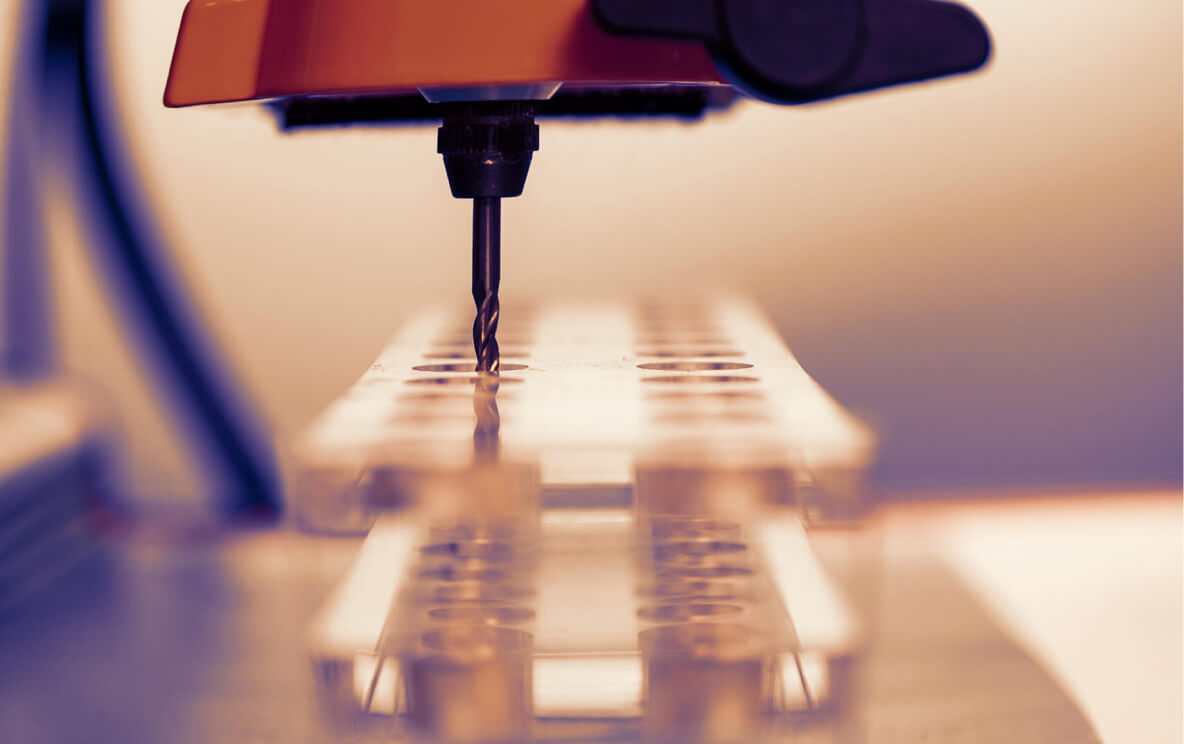
Marine Industry
The marine industry can easily be everything from shipbuilding to the manufacturing of subsea exploration equipment, and with this vast span, CNC machining is a must have. Due to the harsh environmental conditions, combined with exposure and wear require long-lasting corrosion resistance components hence CNC machining is best suited for this industry.
Precision and Durability
The precision required and especially the robustness in marine environments equates to demanding marine applications. CNC machining allows for the fabrication of intricate parts that meet these high standards. These include propellers, engine parts and structure members of ships or submarines which must be compliant with high mechanical strength and good corrosion resistance to both static water pressure,stagnation sea water passing the controlling elements such as monitoring probes that are below ground level in addition when exposed not only themselves but also restrain hydrodynamic loads acting on it.
Corrosion-Resistant Materials
The marine industry requires the following materials range used in CNC machines which are corrosion-resistant.
- Stainless Steel – Stainless steel is generally rust-resistant and as a result, it makes for good hardware on the deck or other optically-stressed parts.
- Bronze: Used for many years in the construction of ship propellers and submerged bearings, due to its great resistance corroding seawater.
- High Strength Titanium: The high-strength-to-weight ratio and exceptional corrosion resistance also make this titanium class ideal for the most challenging, high-stress marine applications.
Complex Component Fabrication
Complex components such as hull sections, rudders and shafts are typical of the large parts often required by the marine industry. This helps make sure each component fits seamlessly together, which is critical for the mechanical properties and integrity of marine vessels as a whole (CNC machining such components with precision ensures they are perfectly accurate).
Cost-Effectiveness and Efficiency
CNC machining increases production precision and streamline processes while also reducing waste. Such efficiency is especially important to the marine industry, much of which uses automated composite fabrication processes at a volume that makes any reduction in material waste or time spent on part production add up quickly financially. Automating most machining processes also results in cost savings on labor and reduces human error-both of which work to increase production efficiency.
Customization and Flexibility
MarineInside of Marine surface pitted corrosionThe marine industry demands a high level of customization, given the wide range of applications from leisure boats to commercial vessels and Navy submarines. CNC machining offers the flexibility required to produce custom components that adhere to strict design standards. This flexibility is essential to preserve the functionality and compliance of marine vessels with International safety and performance criteria.
Quality Assurance
Safeguarding quality is critical in the marine industry as it can never be comprised on matters of safety. With CNC machining, the repeatability factor is great since every part from first to thousandth would be just about identical. This consistency also plays an important role for parts that have to work together with larger systems, like in ship engines or steering mechanisms.
